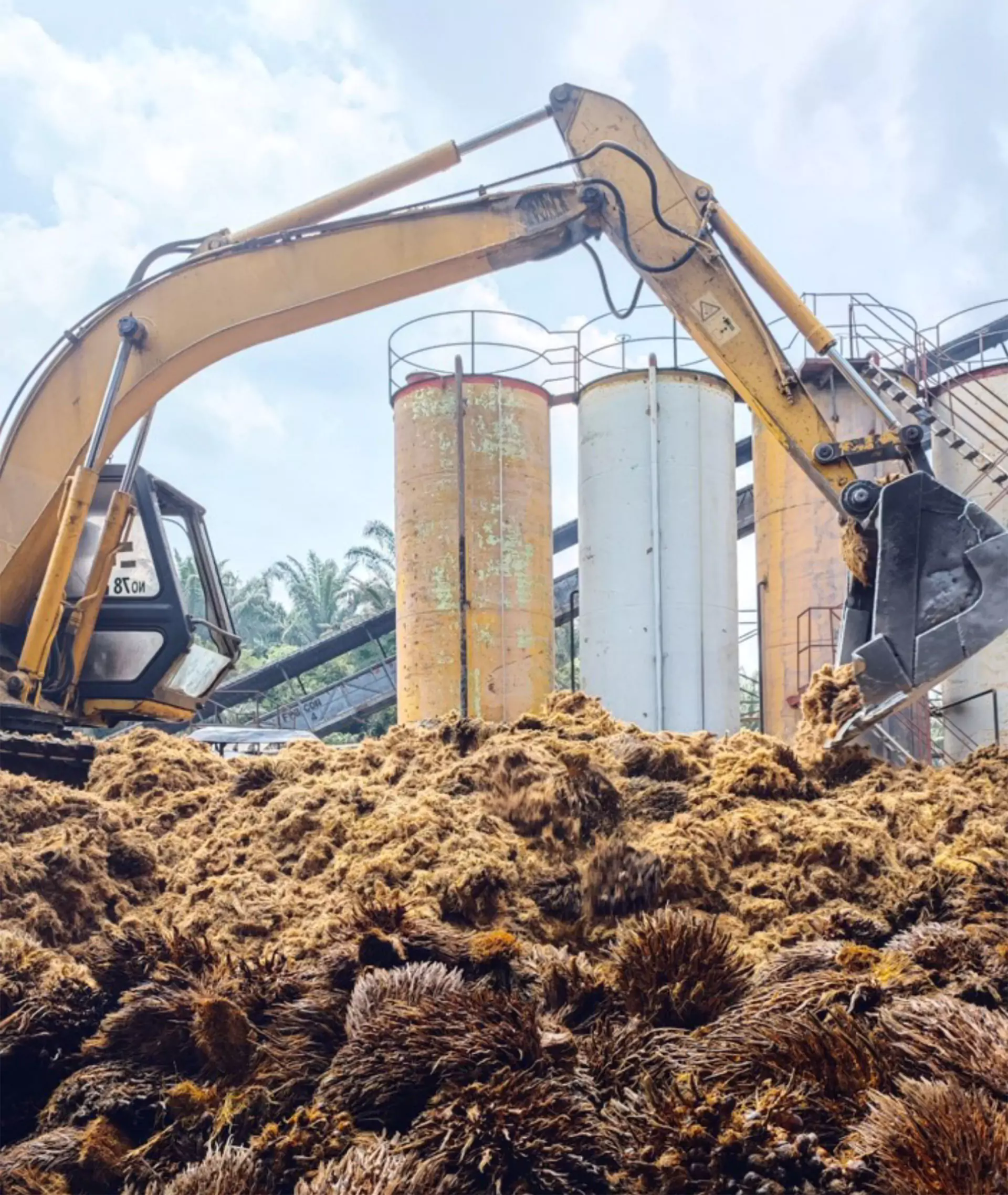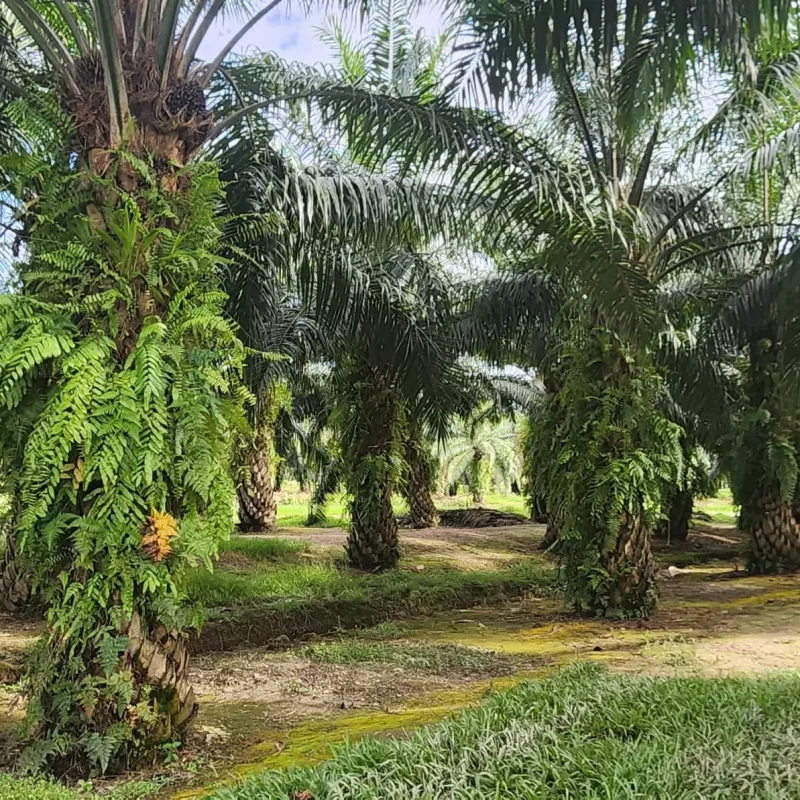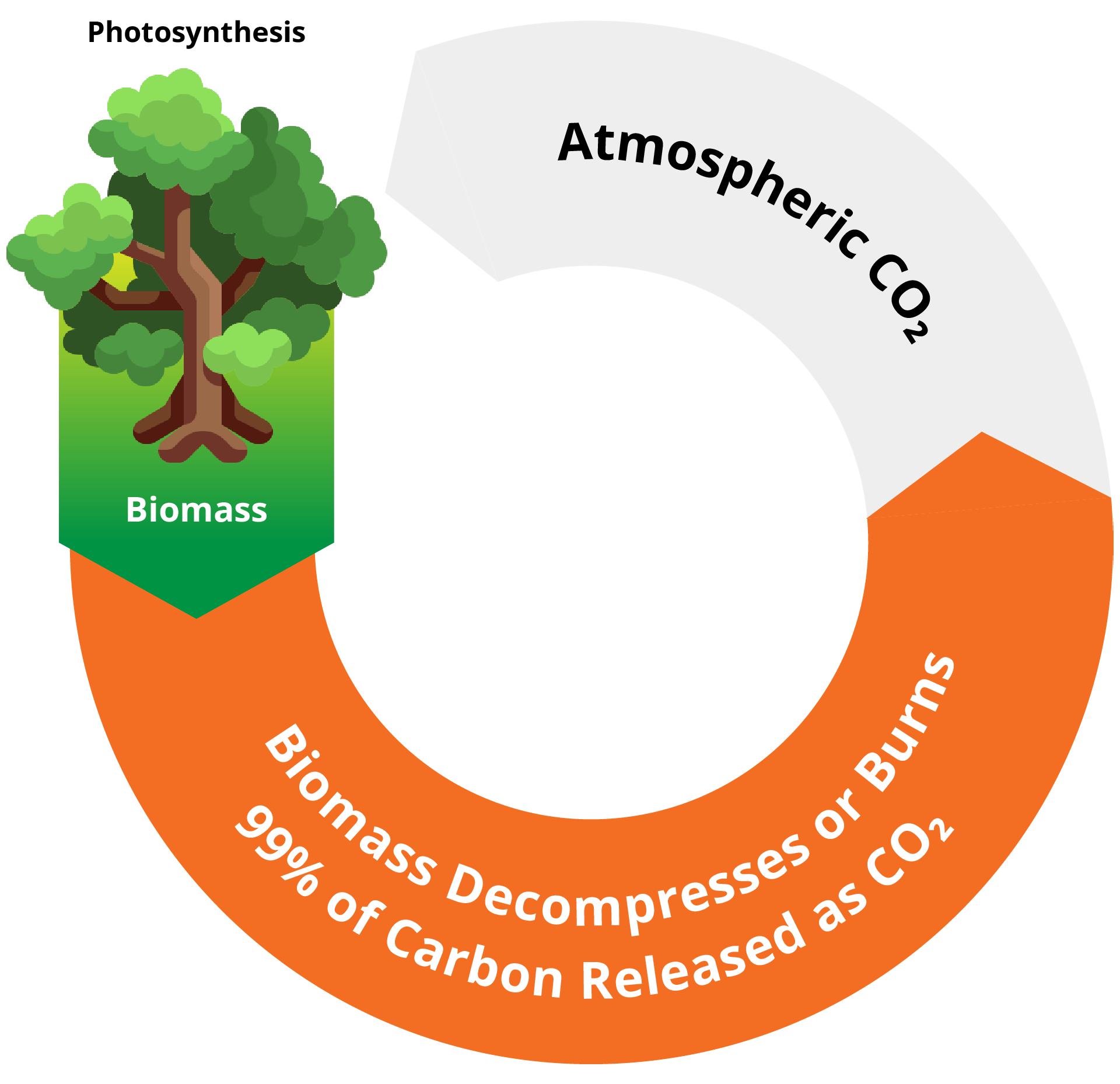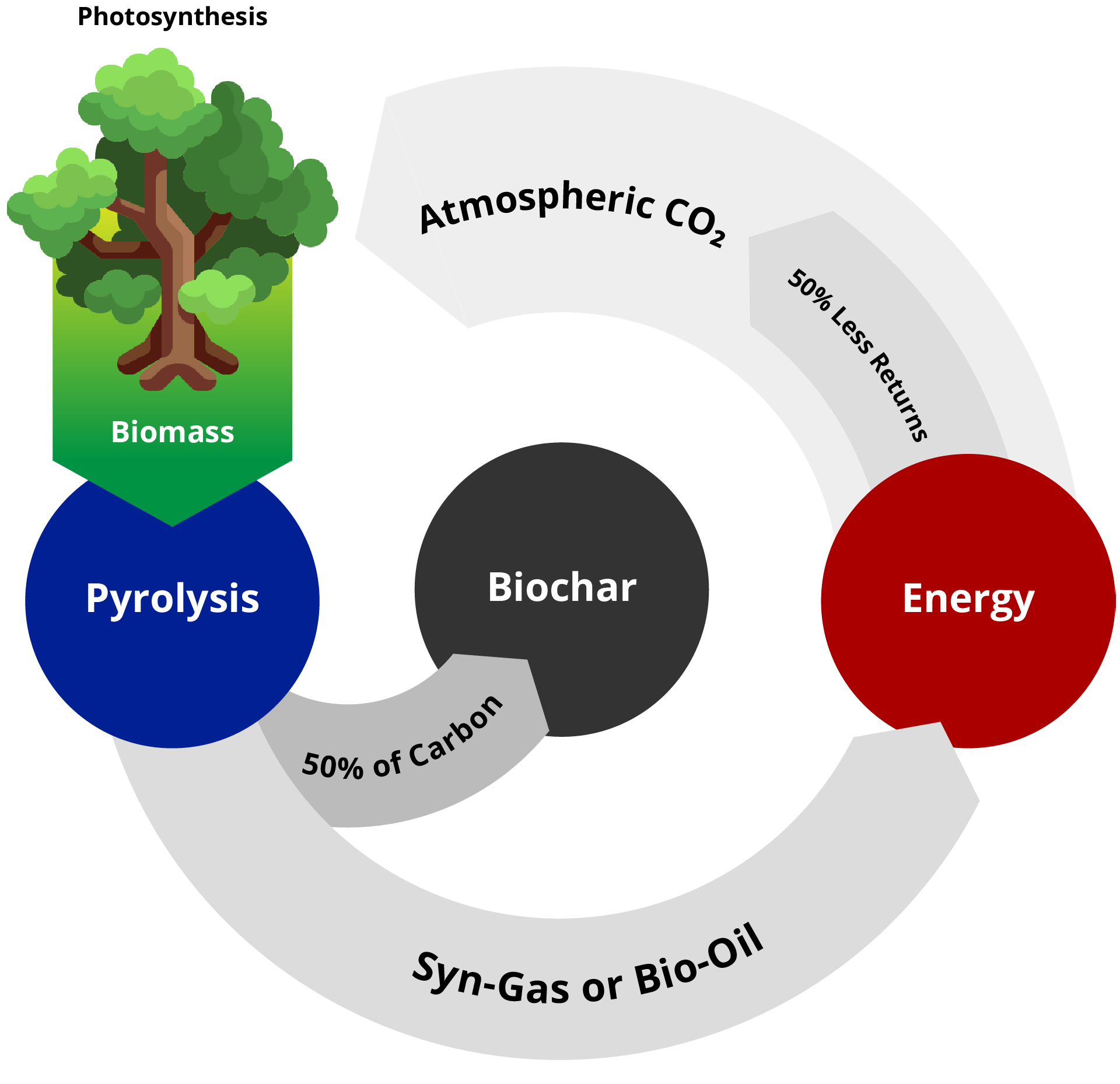Oil palm biomass is a valuable resource derived from the palm oil industry, offering a range of byproducts with diverse applications. Key types include Empty Fruit Bunch (EFB), Oil Palm Trunk (OPT), Palm Kernel Meal (PKM), and Palm Kernel Shell (PKS), each generated during different stages of palm oil production. These materials, once considered waste, are now recognized for their potential across multiple industries due to their abundance and versatility.
These oil palm biomass types support industries like biofuel production, animal feed and bedding, composting, and agricultural cultivation, contributing to sustainability by reducing waste and creating value from renewable resources.
Empty Fruit Bunch (EFB)
Empty Fruit Bunch (EFB), the most abundant oil palm biomass, is notoriously challenging to pelletize, yet it holds immense potential as a solid biofuel for the energy sector. This unique material has captured the attention of biomass and energy industry stakeholders eager to unlock its value. At Treehouz Asia, we’ve turned this challenge into opportunity, establishing ourselves as pioneers in converting EFB into high-quality biofuel.
With over 15+ completed EFB processing facilities—including drying, pelletizing, and briquetting plants—Treehouz Asia brings unmatched experience to the table. Our proudest milestone is designing and building what is likely the world’s first 24/7 commercial EFB pellet plant, a testament to our innovation and reliability.
Based in Malaysia, a global hub for oil palm equipment design and fabrication, we’ve developed proprietary technology to process EFB into pellets that meet international standards, proudly exporting them to markets overseas.


Oil Palm Trunk (OPT)
At Treehouz Asia, we’ve cracked the code on pelletizing Oil Palm Trunk (OPT), an extremely difficult biomass known for its abrasiveness and exceptionally high moisture content—often exceeding 70%. As pioneers in Oil Palm biomass processing solutions, we’ve successfully transformed OPT into high-quality biofuel pellets, overcoming its unique challenges to unlock its potential as a sustainable energy source. Our proven track record includes pelletizing OPT for clients across the industry, turning a once-overlooked byproduct into a valuable commodity that powers energy markets worldwide.
Treehouz Asia built its first OPT pellet plant in 2014, marking a significant milestone in the industry. Since then, our engineers have refined the equipment and processes, culminating in the construction of a second plant in 2017.
Whether it’s designing a pilot plant or scaling up to a full commercial facility, our expertise ensures your OPT pelletizing project succeeds—meeting global industry standard and commercially viable.
Palm Kernel Shell (PKS)
We specialize in transforming biomass waste into high-value products through advanced carbonization and pelletizing technologies. Our Biochar is a highly porous material with exceptional adsorptive properties, making it a sustainable solution for agriculture, water treatment, and renewable energy applications.
The Biochar Cycle
We specialize in transforming biomass waste into high-value products through advanced carbonization and pelletizing technologies. Our Biochar is a highly porous material with exceptional adsorptive properties, making it a sustainable solution for agriculture, water treatment, and renewable energy applications.
The Carbon Cycle

Almost all of the carbon returns to the air
Green plants remove CO₂ from the atmosphere via photosynthesis and convert it into biomass. Virtually all of that carbon is returned to the atmosphere when plants die and decay, or immediately if the biomass is burned as a renewable substitute for fossil fuels.
The Biochar Cycle

Up to half of the carbon is sequestered
Green plants remove CO₂ from the atmosphere via photosynthesis and convert it into biomass. Up to half of that carbon is removed and sequestered as biochar, while the other half is converted to renewable energy co-products before being returned to the atmosphere.
Industrial Applications
1
Soil Fertility Enhancement
for Energy Crops
PKS Biochar improves soil fertility by enhancing nutrient retention, supporting beneficial microbes, and optimizing the growth of energy crops like oil palm trunk and empty fruit bunch (EFB). As a biochar fertilizer, it promotes sustainable farming practices while integrating seamlessly into pellet plant automation for large-scale biomass applications.
2
Carbon Capture & Sustainable
Biomass Energy
Acting as a long-term carbon sink, PKS Biochar plays a crucial role in carbon sequestration, reducing greenhouse gas emissions, and supporting biomass energy projects in Malaysia. It complements gasification systems, where it can be used to produce syngas, an eco-friendly alternative to fossil fuels, contributing to the transition toward sustainable energy biomass.
3
Water Filtration &
Industrial Applications
With its high adsorptive capacity, PKS Biochar is an effective filtration material for water treatment systems. It is also an ideal precursor for activated carbon production, serving industries that require high-performance adsorption solutions. Additionally, it can be pelletized or briquetted for ease of handling and efficient use in biomass plants.
4
Renewable Energy & Biomass Drying Solutions
PKS Biochar is a sustainable fuel alternative for biomass energy systems, including hot gas generators and biomass dryers such as rotary drum dryers, single-pass drum dryers, and triple-pass drum dryers. It can also be upgraded into black pellets through torrefaction or steam explosion, providing a high-energy, durable fuel for pellet mills and pellet plants.
Understanding Oil Palm Biomass Oil palm biomass is a valuable resource derived from the palm oil industry, offering a range of byproducts with diverse applications. Key types include Empty Fruit Bunch (EFB), Oil Palm Trunk (OPT), Palm Kernel Meal (PKM), and Palm Kernel Shell (PKS), each generated during different stages of palm oil production. These materials, once considered waste, are now recognized for their potential across multiple industries due to their abundance and versatility.
Empty Fruit Bunch (EFB): Left after oil extraction from palm fruit, EFB is fibrous and high in organic content. It’s widely used as a biofuel feedstock (e.g., pellets or briquettes), compost for agriculture, and mulch for soil enhancement.Oil Palm Trunk (OPT): Harvested during replanting of oil palm trees, OPT has high moisture content but is rich in cellulose. It’s primarily processed into biofuel pellets, though it can also contribute to compost production and cultivation substrates. Palm Kernel Meal (PKM): A byproduct of palm kernel oil extraction, PKM is protein-rich and commonly utilized as animal feed, particularly for livestock and poultry, and occasionally as a fertilizer component. Palm Kernel Shell (PKS): The hard, woody shell of the palm kernel, PKS is valued as a high-energy biofuel for power generation and industrial heating, and sometimes as bedding material for animals. These oil palm biomass types support industries like biofuel production, animal feed and bedding, composting, and agricultural cultivation, contributing to sustainability by reducing waste and creating value from renewable resources.
Are you looking for turnkey solutions?
Learn more about our turnkey
solutions or contact us below to discuss your project.

